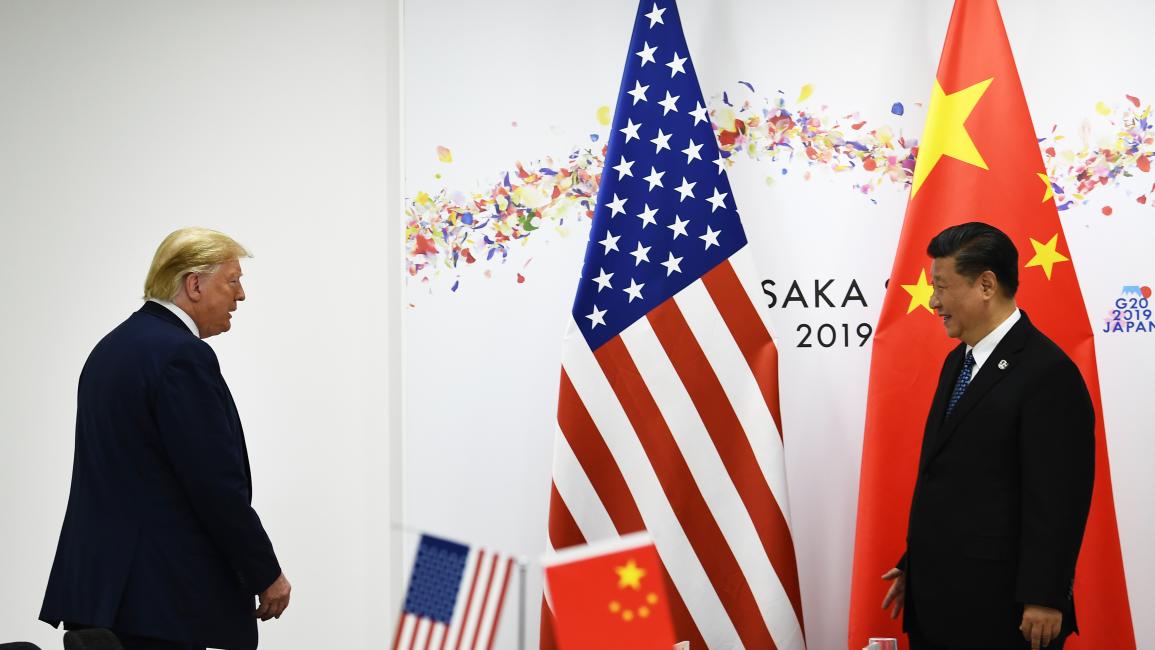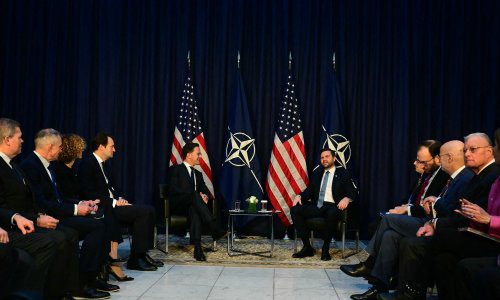China-U.S. Diplomatic Exchanges Intensify: Potential Trump-Xi Meeting

Recent diplomatic exchanges between China and the United States have generated significant momentum, raising expectations for a possible meeting between President Xi Jinping and former President Donald Trump. High-level discussions involved Defense Ministers Pete Heigsith and Dong Jun, alongside senior diplomats, signaling both countries’ commitment to stabilizing bilateral relations. These developments follow China’s large-scale military parade marking the 80th anniversary of victory over Japan in World War II, which showcased advanced weaponry and reinforced Beijing’s vision for a multipolar international order countering U.S. unilateralism.
HIGH-LEVEL MILITARY AND DIPLOMATIC TALKS
China and the U.S. conducted consecutive talks between Defense Ministers and senior diplomats, emphasizing the importance of managing disagreements constructively and exploring practical cooperation. Chinese Foreign Minister Wang Yi spoke with U.S. Secretary of State Marco Rubio, while U.S. Defense Secretary Pete Heigsith held a video call with Admiral Dong Jun. These meetings marked the first direct communications since both officials assumed their posts, demonstrating a shared interest in strengthening strategic communication.
Analysts have described these interactions as a constructive diplomatic step Anticipated Meeting Between Trump and Qatar’s Prime Minister, potentially paving the way for high-level engagements between Xi and Trump.
SHIFTING TONES IN BILATERAL RELATIONS
The U.S. Department of Defense described the discussions as candid and constructive, clarifying that Washington does not seek conflict with Beijing nor aims to alter China’s system. Simultaneously, China emphasized the principle of non-conflict and non-confrontation, urging the identification of positive factors to enhance overall bilateral certainty.
Observers note a notable reduction in threatening rhetoric Trump on Russian Drone Incursion, reflecting a strategic effort to build trust and facilitate dialogue. Both sides acknowledged the necessity of managing disputes responsibly while exploring avenues for practical collaboration.
SETTING THE STAGE FOR A TRUMP-XI SUMMIT
The last meeting between Xi and Trump occurred in 2019, followed by a 90-minute phone call in June this year. Leaders reiterated that dialogue and cooperation remain the optimal approach to managing bilateral relations and resolving disputes. Reports indicate that Trump plans to visit South Korea next month for the APEC trade ministers’ meeting, providing an opportune setting for a potential Xi-Trump encounter.
Experts, including Professor Jiang Li from the Wenshuan Center for Strategic Studies, suggest that intensive recent exchanges UK Economy Stagnates Amid Rising Tenant Crises indicate a genuine desire to remove obstacles ahead of a summit, likely scheduled for November. Observers highlight the shift in U.S. statements on Taiwan and the South China Sea as evidence of a pragmatic approach by Washington.
KEY ISSUES ON THE TABLE
Political analyst Lin Wei identifies three critical topics for discussion: Taiwan, the South China Sea, and U.S. tariffs. Beijing consistently emphasizes its legitimate rights, reiterating adherence to the “One China” principle and non-interference in matters like Taiwan. While tariffs are a relatively new point of contention reflecting Trump’s transactional approach, Taiwan and the South China Sea remain core strategic disputes fueled by repeated U.S. interventions.
China considers Taiwan an inseparable part of its territory, with reunification possible by force if necessary. The U.S. opposes any unilateral seizure but continues to supply arms to Taipei. Rising tensions across the Taiwan Strait, following the election of independence-supporting leader William Lai, have intensified military activities in the region. Trump has maintained ambiguity on U.S. direct involvement, avoiding definitive statements regarding military engagement.
Analysts argue that resolving trade tensions Pakistan Floods Devastate Thousands could be achievable through diplomatic channels, whereas strategic disputes in Taiwan and the South China Sea require careful negotiation to prevent escalation.
IMPACT AND FUTURE PROSPECTS
The recent diplomatic exchanges between Beijing and Washington demonstrate a commitment to stabilizing bilateral relations amid global uncertainties. Analysts suggest that high-level coordination, combined with strategic patience, enhances the likelihood of a successful summit, fostering confidence in the management of sensitive geopolitical issues.
Strategic cooperation, transparent communication, and adherence to international norms French Parliamentary Committee Recommends Strict Restrictions on TikTok are key to reducing misunderstandings and potential conflicts, strengthening the overall framework for China-U.S. relations.
The ongoing diplomatic momentum between China and the U.S. highlights a strategic effort to manage disputes, reinforce stability, and create conditions for a possible Trump-Xi summit. Constructive dialogues at both military and diplomatic levels underscore the importance of communication in mitigating conflict and fostering cooperation.
Summary Analysis: By emphasizing diplomacy, China and the U.S. are paving the way for potential high-level engagement. Addressing trade, Taiwan, and the South China Sea will require careful negotiation, but recent exchanges indicate readiness for practical solutions. These developments reflect a broader trend toward stabilizing bilateral relations while balancing competing geopolitical interests.
This article is for entertainment and informational purposes only; all facts are subject to verification.




